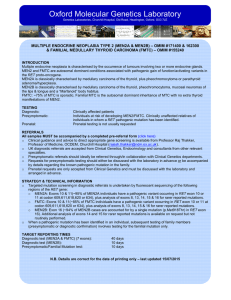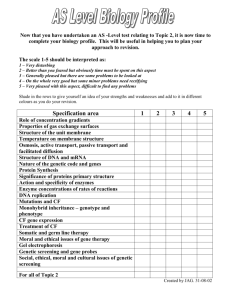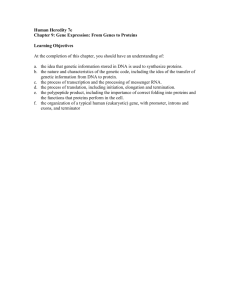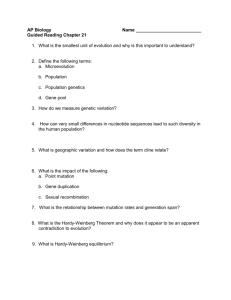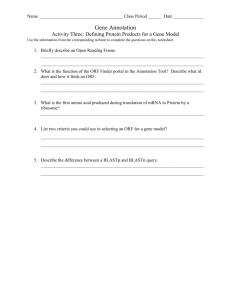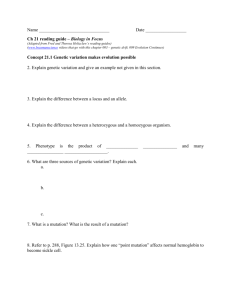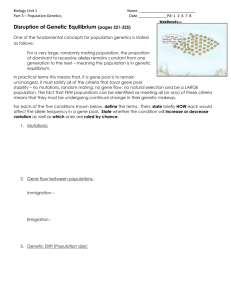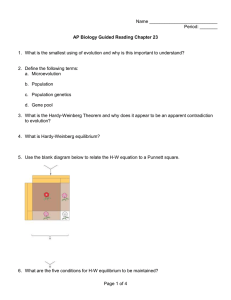Multiple Endocrine Neoplasia (MEN Type 2)
advertisement
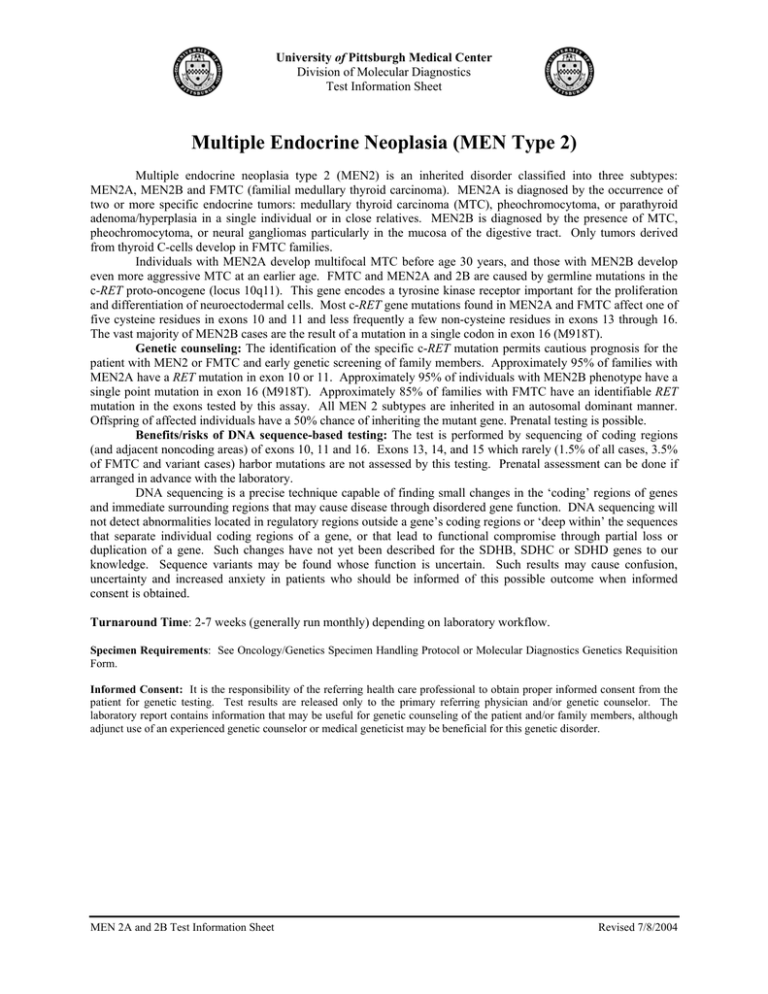
University of Pittsburgh Medical Center Division of Molecular Diagnostics Test Information Sheet Multiple Endocrine Neoplasia (MEN Type 2) Multiple endocrine neoplasia type 2 (MEN2) is an inherited disorder classified into three subtypes: MEN2A, MEN2B and FMTC (familial medullary thyroid carcinoma). MEN2A is diagnosed by the occurrence of two or more specific endocrine tumors: medullary thyroid carcinoma (MTC), pheochromocytoma, or parathyroid adenoma/hyperplasia in a single individual or in close relatives. MEN2B is diagnosed by the presence of MTC, pheochromocytoma, or neural gangliomas particularly in the mucosa of the digestive tract. Only tumors derived from thyroid C-cells develop in FMTC families. Individuals with MEN2A develop multifocal MTC before age 30 years, and those with MEN2B develop even more aggressive MTC at an earlier age. FMTC and MEN2A and 2B are caused by germline mutations in the c-RET proto-oncogene (locus 10q11). This gene encodes a tyrosine kinase receptor important for the proliferation and differentiation of neuroectodermal cells. Most c-RET gene mutations found in MEN2A and FMTC affect one of five cysteine residues in exons 10 and 11 and less frequently a few non-cysteine residues in exons 13 through 16. The vast majority of MEN2B cases are the result of a mutation in a single codon in exon 16 (M918T). Genetic counseling: The identification of the specific c-RET mutation permits cautious prognosis for the patient with MEN2 or FMTC and early genetic screening of family members. Approximately 95% of families with MEN2A have a RET mutation in exon 10 or 11. Approximately 95% of individuals with MEN2B phenotype have a single point mutation in exon 16 (M918T). Approximately 85% of families with FMTC have an identifiable RET mutation in the exons tested by this assay. All MEN 2 subtypes are inherited in an autosomal dominant manner. Offspring of affected individuals have a 50% chance of inheriting the mutant gene. Prenatal testing is possible. Benefits/risks of DNA sequence-based testing: The test is performed by sequencing of coding regions (and adjacent noncoding areas) of exons 10, 11 and 16. Exons 13, 14, and 15 which rarely (1.5% of all cases, 3.5% of FMTC and variant cases) harbor mutations are not assessed by this testing. Prenatal assessment can be done if arranged in advance with the laboratory. DNA sequencing is a precise technique capable of finding small changes in the ‘coding’ regions of genes and immediate surrounding regions that may cause disease through disordered gene function. DNA sequencing will not detect abnormalities located in regulatory regions outside a gene’s coding regions or ‘deep within’ the sequences that separate individual coding regions of a gene, or that lead to functional compromise through partial loss or duplication of a gene. Such changes have not yet been described for the SDHB, SDHC or SDHD genes to our knowledge. Sequence variants may be found whose function is uncertain. Such results may cause confusion, uncertainty and increased anxiety in patients who should be informed of this possible outcome when informed consent is obtained. Turnaround Time: 2-7 weeks (generally run monthly) depending on laboratory workflow. Specimen Requirements: See Oncology/Genetics Specimen Handling Protocol or Molecular Diagnostics Genetics Requisition Form. Informed Consent: It is the responsibility of the referring health care professional to obtain proper informed consent from the patient for genetic testing. Test results are released only to the primary referring physician and/or genetic counselor. The laboratory report contains information that may be useful for genetic counseling of the patient and/or family members, although adjunct use of an experienced genetic counselor or medical geneticist may be beneficial for this genetic disorder. MEN 2A and 2B Test Information Sheet Revised 7/8/2004
